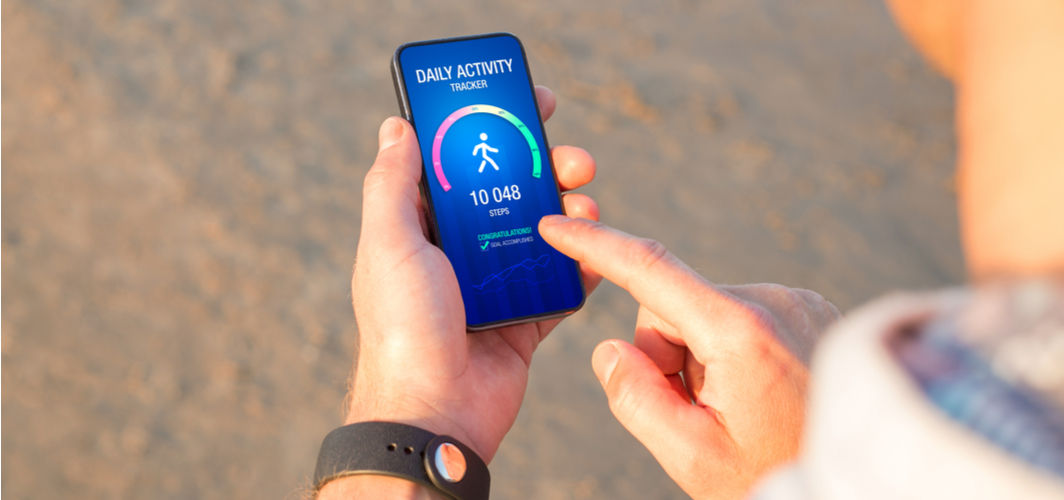General Health
Is 7000 Daily Steps the Magic Number for Better Health?
3 min read
By Apollo 24/7, Published on - 17 September 2021, Updated on - 17 July 2023
Share this article
1
160 likes

It is generally believed that exercising strenuously and following calorie-restricted diets are the only ways to stay healthy and fit. However, various studies have found that people can maintain an active lifestyle by following simple exercise routines every day. A recent study conducted by scientists from the University of Massachusetts, Amherst found that walking a certain number of steps daily can reduce the risk of premature death.
The study: Counting the steps
A recent study published in the journal JAMA Network on 3rd September 2021 revealed an association between the number of steps walked every day and the risk of premature mortality. In this study, scientists included 2110 participants in the age group of 38 to 50 years.
Depending on the number of steps, the participants were divided into three groups:
- Low-step volume: Less than 7,000 steps per day
- Moderate-step volume: 7,000 to 9,999 steps per day
- High-step volume: More than 10,000 steps per day
The participants were made to wear an accelerometer, a device that helps in assessing the movement and intensity of physical activity.
Results of the study
After following up for 10.8 years, it was found that:
- Participants in the moderate and high-step volume group were at reduced risk of all-cause mortality as compared to the low-step volume group.
- People who walked at least 7000 steps per day had a 50% to 70% lower risk of having a premature death as compared to the low-step volume group.
- There was no further reduction in mortality risk in the participants who walked for more than 10,000 steps a day.
- The intensity of the steps had no significant effect on the risk of mortality.
With this study, scientists concluded that increasing the number of steps per day can help prevent premature deaths amongst the least active people.
Previous studies depicting the association between walking and longevity
Several studies conducted in the past have also shown that walking increases longevity. Some of these include:
- A study published in the Journal of the American Geriatrics Society in 2017 including 3375 participants in the age group of 70 to 90 years found that people who walked daily (6 to 7 days a week) lived longer than those who didn’t.
- Another study published in the journal Frontiers in Public Health in 2013, including more than 3000 participants ageing 65 and above, found that people who walked daily had a 14.4% lesser risk of having a premature death than those who didn’t.
- Research published in The Lancet in 2011 found that walking and performing aerobic exercise for 15 minutes a day or 90 minutes a week increased 3 years of life.
What are the other benefits of walking?
Walking is known to offer several health benefits:
- Relieves period pain: Research shows that walking for 30 minutes a day regularly can help deal with the pain associated with periods and other symptoms of premenstrual syndrome (PMS).
- Improves mood: Mental health experts believe that walking for at least 30 mins can help improve the symptoms associated with mood disorders such as depression and anxiety while enhancing concentration.
- Helps maintain weight: Walking is a form of low to medium intensity cardiovascular exercise that can improve metabolism and help shed extra weight. It can also prevent muscle loss.
- Relieves joint pain: Research published in the American Journal of Preventive Medicine in 2019, including over 1564 adults with constant lower-body joint pain, concluded that people who walked for an hour every week had better mobility and reduced pain in their joints.
- Prevents diabetes: Walking is an aerobic exercise that allows the body to utilise insulin more efficiently, thereby reducing the risk of developing diabetes.
Conclusion
Walking is a medium intensity exercise that improves overall health and reduces the risk of premature death. It is one such exercise that does not require any equipment and can be practised without the help of an expert. One can also invest in digital smartwatches that help track the number of steps in a day. People with pre-existing medical conditions such as diabetes and heart diseases must consult their doctors before increasing their daily steps.
People with diabetes can talk to a diabetologist while people with heart conditions can speak to a cardiologist before altering their walking regimen.
General Health
Leave Comment
Recommended for you

General Health
Urine Infection: Symptoms, Cause, Diagnosis, Treatment, Prevention
Discover the causes, symptoms, and prevention of urine infections. Stay informed about the latest guidelines, technologies, and lifestyle factors to maintain a healthy urinary tract.

General Health
Food Allergy Vs Food Intolerance: What is the Difference?
There is difference between food allergy and food intolerance. Either of these conditions can cause headache, bloating, rashes, and stomach ache. Consult our doctors to learn about food intolerance vs food allergy.

General Health
Thyroid Treatment: Can Thyroid Disorders Be Cured Completely?
Thyroid disorders, including hyperthyroidism and hypothyroidism, can be treated and improved with the help of a proper treatment plan. Find out more about how these disorders are treated and what you can do to keep them under control.
Subscribe
Sign up for our free Health Library Daily Newsletter
Get doctor-approved health tips, news, and more.
Visual Stories

Science-backed Home Remedies for Burns and Blisters
Tap to continue exploring
Recommended for you

General Health
Urine Infection: Symptoms, Cause, Diagnosis, Treatment, Prevention
Discover the causes, symptoms, and prevention of urine infections. Stay informed about the latest guidelines, technologies, and lifestyle factors to maintain a healthy urinary tract.

General Health
Food Allergy Vs Food Intolerance: What is the Difference?
There is difference between food allergy and food intolerance. Either of these conditions can cause headache, bloating, rashes, and stomach ache. Consult our doctors to learn about food intolerance vs food allergy.

General Health
Thyroid Treatment: Can Thyroid Disorders Be Cured Completely?
Thyroid disorders, including hyperthyroidism and hypothyroidism, can be treated and improved with the help of a proper treatment plan. Find out more about how these disorders are treated and what you can do to keep them under control.